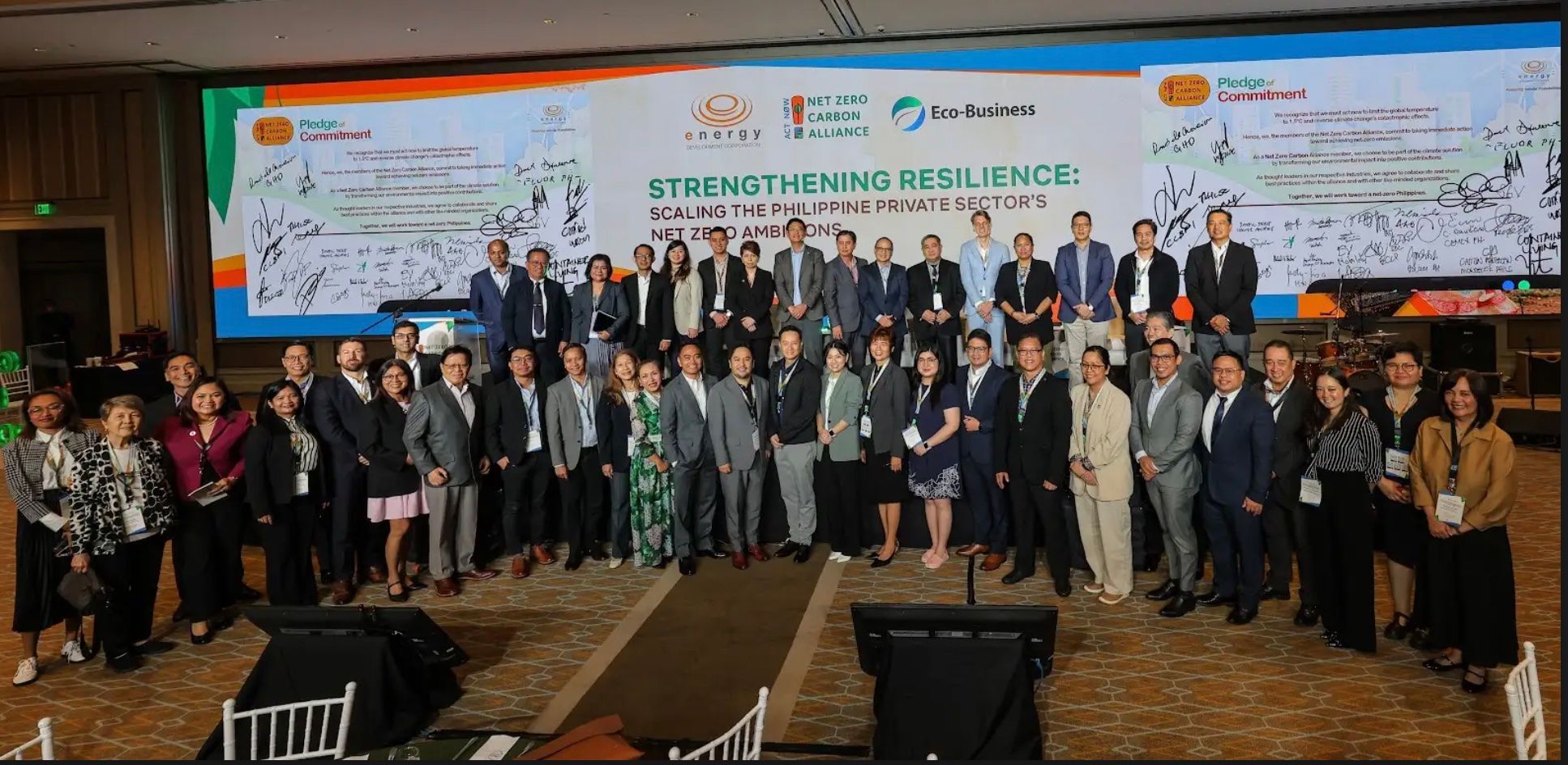Philippine net zero alliance to firm up 'uniform' emissions reduction baseline by next year
At A Glance
- Globally, the proclivity of many economies and businesses for greenwashing - or making misleading claims on sustainability efforts – is highly being scrutinized under a microscope – and when these entities fail to back up their net zero claims with hard data, they run the risk of public backlash or having their reputation destroyed, primarily to consumers who are now getting more environment-conscious.
As genuine sustainability will eventually determine winners and losers across businesses and nations, the companies and organizations in the Philippines that have been leading the climate action via the Net Zero Carbon Alliance (NZCA) are targeting to institutionalize a science-based and credible ‘uniform baseline’ as tangible metrics on how they could universally pare carbon emissions that is aligned with the 1.5 degrees C global warming limit under the Paris Agreement.
NZCA Executive Director Allan V. Barcena, who is also assistant vice president and head of Corporate Support Functions at Lopez-led Energy Development Corporation (EDC), stated that for the uniform carbon emissions (CO2) reduction baseline across all members, “we’re still figuring that out … we have an idea and we’re finalizing it. Hopefully next year, we can start with that.”
He qualified that individual corporate-partners – EDC included - are still leaning on their own baselines of lowering emissions, but Barcena acknowledged that having a ‘collective baseline’ will be key in in achieving realistic and credible net zero targets; and doing anything less than that would just be tantamount to greenwashing.
“We need to do collective – meaning, we have to agree that: okay, this is our starting point and we have our ambition…of course individually, we have our own journey and goals, but it will be best for us to have a collective impact, that’s what the alliance is all about – by pooling together our emissions reduction,” he stressed.

The growing base of partners for Net Zero Carbon Alliance
Globally, the proclivity of many economies and businesses for greenwashing - or making misleading claims on sustainability efforts – is highly being scrutinized under a microscope – and when these entities fail to back up their net zero claims with hard data, they run the risk of public backlash or having their reputation destroyed, primarily to consumers who are now getting more environment-conscious.
It was emphasized that setting a baseline is a crucial first step to make real progress when it comes to net zero targets; hence, Barcena reiterated that this is a serious step that NZCA will be concretizing moving forward.
At this stage, he acknowledged that their partner-firms still have varied accomplishments on their carbon lowering ambitions, adding that “some are more advanced in terms of reduction, some are starting, some are building their capabilities to be able to make significant reductions.”
NZCA is basically a three-year old organization, hence, for them to make headway on the net zero race, Barcena conveyed that “we encourage everyone, we share technologies, we share best practices so that some of our partners will make good their commitment to become net zero by 2050 or before.”
On this year’s NZCA conference, the alliance initially disclosed the accomplishments of the pioneering 12 partners on their CO2 emissions reduction as anchored on scopes 1 and 2 of the Greenhouse Gas (GHG) Protocol.
Barcena expounded that the other important facets of emissions reduction in their to-do list at NZCA would be on having a concrete formula and third party audits on reported emissions reduction data.
“There’s NZCA gateway or portal wherein we have tried to standardize the reporting of the members, so that we can capture the collective. The formula, we need to do it by scope - scope 1 is direct emissions, scope 2 indirect emissions and scope 3 is the value chain,” he said.
The EDC executive further explained “the basic principle is: you reduce as low as possible; of course, we cannot do zero – there will always be emissions which is why there is such thing as net zero because you need to bring down your emissions as low as possible; and then whatever residual emissions that you can no longer reduce or remove, you can offset it.”
Barcena opined “it’s hard to go to scope 3 without reducing 1 and 2, so we are trying to reduce our scopes 1 and 2 using the portal; and hopefully, we’ll get to scope 3 which makes the process complete -- but that will be extremely difficult because you now have to make sure it’s done through the entire supply chain which is beyond your control.”
In terms of having unbiased audit to verify if the claimed reductions are real and measurable, Barcena admitted that “right now, very few are still doing third party audit.”
Yet while their partner-entities still cling on to self-declared emissions reduction, he averred that “as best practice, we need to have it audited and verified by external party …the gold standard is to have it audited.”